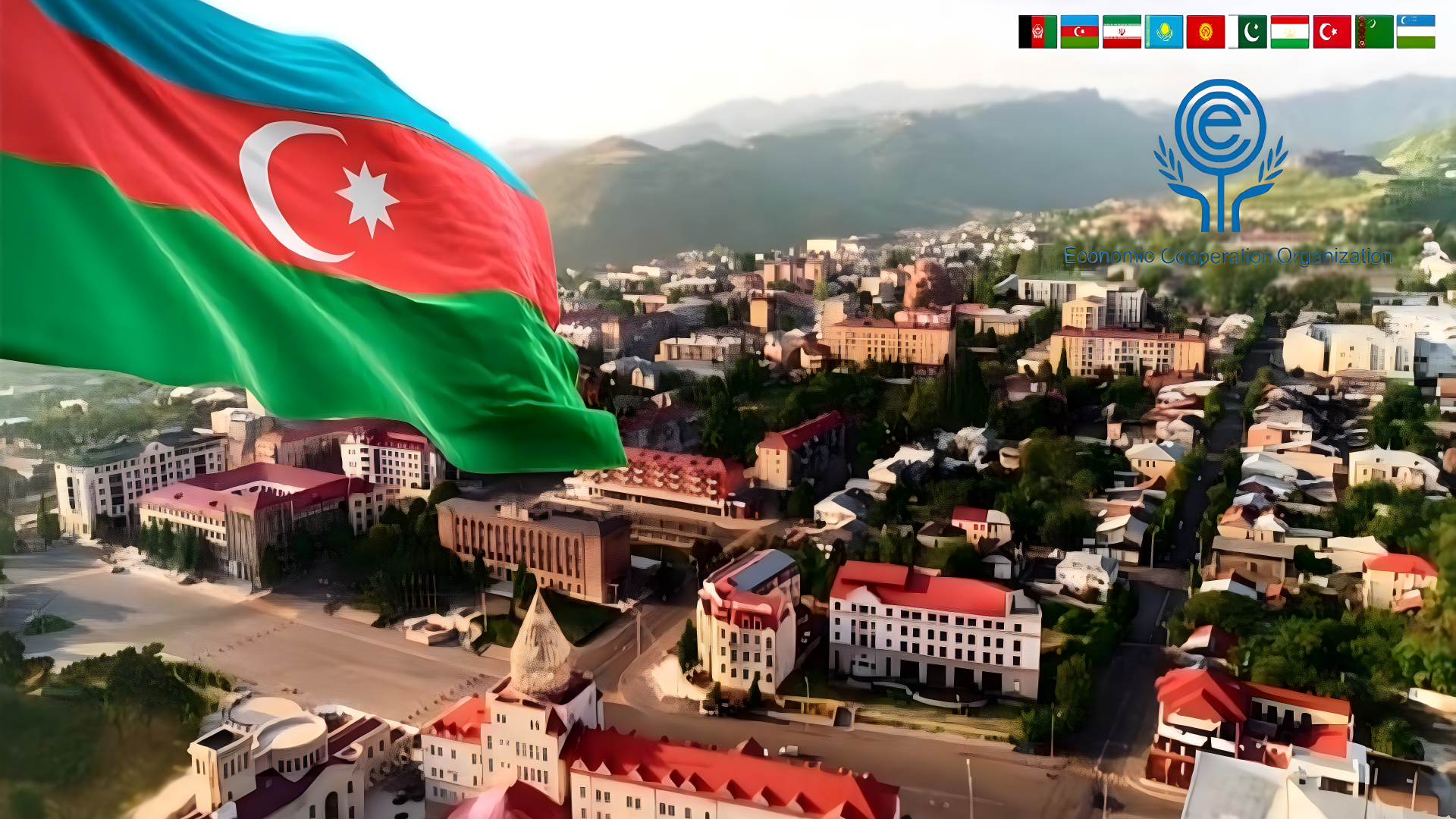Azerbaijan, known for its capacity to host global forums and intergovernmental events, is preparing to host yet another landmark gathering—one that holds immense political, economic, and symbolic significance. On July 3–4, 2025, the city of Khankendi will host the 17th Summit of the Economic Cooperation Organization (ECO), bringing together heads of state and government from across the ECO space. This will mark the first international summit ever held in Khankendi, a city once synonymous with separatism and conflict, now rapidly transforming into a platform for peace, reintegration, and international dialogue.
The summit will be part of a broader series of events held across Azerbaijan’s liberated territories: a Youth Forum in Agdam, a Business Forum in Shusha, and a Women’s Forum in Lachin. These parallel gatherings not only highlight Azerbaijan’s diplomatic initiative but also its commitment to inclusive post-conflict reconstruction that integrates youth, private enterprise, and civil society into the peacebuilding process.
The choice of Khankendi as the summit’s venue is rich in symbolism. Once the stronghold of Armenian separatist forces and a zone of illegal governance, the city was brought back under full Azerbaijani control following the one-day anti-terror measures in September 2023. Since then, it has seen the re-establishment of constitutional order, the rule of law, and state institutions. Hosting a high-level international summit in the city underscores a new chapter, not only for Garabagh but also for the broader Eurasian region.
As a long-standing member of the Economic Cooperation Organisation (ECO) — a bloc of ten countries stretching from the Middle East to Central and South Asia — Azerbaijan has transitioned from a participating voice to a regional leader with bold, forward-thinking economic initiatives. While headlines tend to focus on the broader rivalries between China, Russia, and the West, Azerbaijan’s expanding influence across trade, energy, and transport corridors is shaping the infrastructure and future of Eurasia in ways that demand global attention.
At the heart of this transformation lies Baku’s strategic pragmatism. Nestled between Europe and Asia, Azerbaijan has taken full advantage of its geography. The Baku–Tbilisi–Kars railway, the Trans-Caspian International Transport Route, and the Southern Gas Corridor are not just regional projects — they are Eurasian arteries, linking the Caucasus with European and Asian markets. In doing so, Azerbaijan has not only positioned itself as a bridge between continents but as a reliable transit and energy hub in a region plagued by volatility and competing interests.
More significantly, Azerbaijan’s contributions to the ECO framework have extended beyond infrastructure. The country has emerged as a consistent voice for economic cooperation and environmental sustainability, backing initiatives in green energy, agriculture, and digital connectivity. This is not merely a question of ambition — it’s about redefining what regional cooperation can look like in the 21st century.
One might argue that the ECO has long struggled with cohesion and visibility on the world stage. But Azerbaijan has treated the organization not as a passive forum but as a platform to project stability, development, and multilateral diplomacy. By hosting two pivotal ECO summits in 2006 and 2012, and by shaping the dialogue around energy security and sustainable growth, Baku has reaffirmed its commitment to turning regional rhetoric into actionable policy.
The ECO Summit in Khankendi, on the other hand, is more than a meeting of economic ministers and heads of state. It is a statement of intent. It demonstrates that Garabagh is no longer a conflict zone, but a stage for sustainable development, regional cooperation, and multilateral diplomacy.
The summit’s agenda will focus on strengthening economic integration among the ten ECO member states—Azerbaijan, Iran, Türkiye, Pakistan, Kazakhstan, Kyrgyzstan, Uzbekistan, Turkmenistan, Tajikistan, and Afghanistan—with discussions expected to touch on trade connectivity, energy partnerships, digital transformation, and regional security. With a population base of over 550 million, ECO represents one of the most significant regional blocs in the Islamic world, and Azerbaijan plays a crucial leadership role within it.
Notably, President Ilham Aliyev has been an active contributor to ECO diplomacy, including his participation in the 15th ECO Summit in Ashgabat in 2021, where the Ashgabat Consensus for Action reinforced support for Azerbaijan’s territorial integrity and post-war reconstruction efforts. The Khankendi summit continues this trajectory, reinforcing Azerbaijan’s growing international subjectivity and diplomatic agency.
Holding the summit in the liberated territories offers a unique opportunity for ECO member states to engage directly with post-conflict reconstruction in Garabagh. Several members—Türkiye, Uzbekistan, Kazakhstan, and Kyrgyzstan—have already contributed to rebuilding efforts in cities like Fuzuli and Shusha, and the summit is expected to catalyse further investment and infrastructure partnerships.
Moreover, Shusha’s designation as the 2026 Cultural Capital of the Organisation of Islamic Cooperation (OIC) further enhances the region’s diplomatic profile. The ECO summit will create synergies between cultural heritage promotion, economic recovery, and sustainable development.
The 17th ECO Summit illustrates Azerbaijan’s evolving foreign policy doctrine: peace through development, diplomacy through infrastructure, and identity-building through sustainability. It also signals a shift in the regional narrative—from frozen conflicts to future-oriented cooperation.
Khankendi, once seen as a flashpoint of geopolitical tensions, is being reframed as a nucleus of inclusive diplomacy and regional integration. In a broader sense, the summit also aligns with Azerbaijan’s increasing role in shaping the future of the Middle Corridor, Islamic solidarity, and South-South cooperation.
In this way, the Khankendi ECO Summit will not simply adopt declarations; it will build a new reality. One in which Garabagh is fully integrated, internationally recognised, and regionally impactful. And one in which Azerbaijan asserts itself as a responsible, forward-looking actor in the Eurasian landscape.

